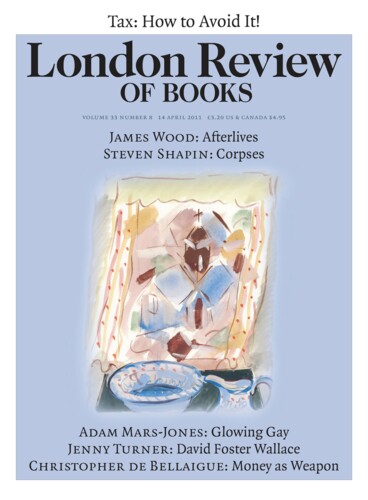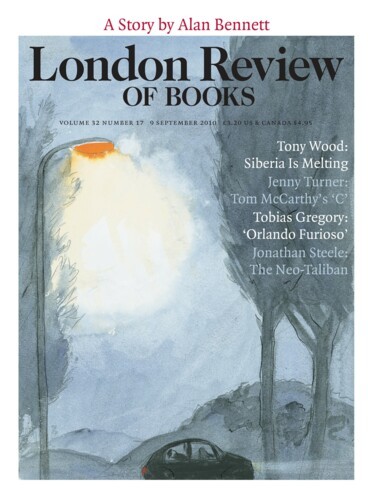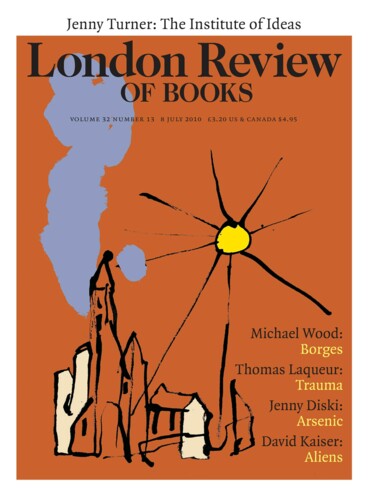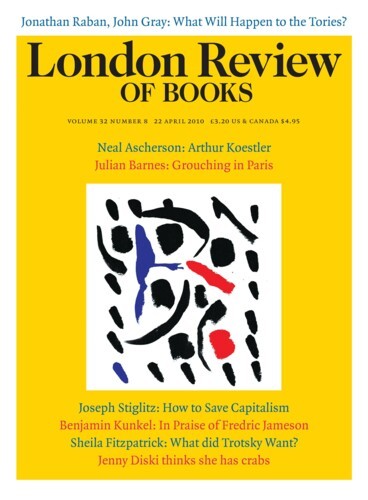Illuminating, horrible etc: David Foster Wallace
Jenny Turner, 14 April 2011
In the spring of 2008, shortly after he started reading Infinite Jest, my friend Francis got in touch to say a) he found the book astonishing, everything I’d said it was, one of the greatest literary works of all time; b) but when he got to the ending – 981 pp. body copy, another 96 of small-print endnotes – did I think he was going to think it was worth it? No, I said, the ending’s infuriating, and although the author denied it and I haven’t made a study of the available papers, I still suspect it was to some extent an afterthought, a way of ducking out of a project that, without it, would maybe never have ended at all. But anyway, I said, that doesn’t matter, because the book pays off so much elsewhere. In the whole thing, for example, the whole magnificent construct. And in its thousands of individual moments, funny, tragic, odd, illuminating, horrible etc. And in the late-stage revelation as to what is actually in ‘the Entertainment’, the video said to be so hideously gratifying that people die while watching it, round and round for ever, in an endless loop. David Foster Wallace always had trouble finishing his novels.





